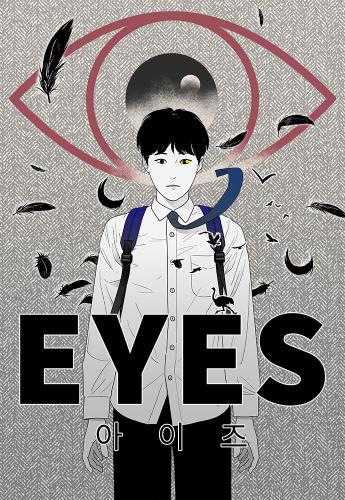Summary

The Revenant
by Michael Punke
Hugh Glass isn’t afraid to die. He’s done it once already.
Rocky Mountains, 1823. The trappers of the Rocky Mountain Fur Company live a brutal frontier life. Hugh Glass is one of the most respected men in the company, an experienced frontiersman and an expert tracker.But when a scouting mission puts Glass face-to-face with a grizzly bear, he is viciously mauled and not expected to survive. Two men from the company are ordered to remain with him until his inevitable death. But, fearing an imminent attack, they abandon Glass, stripping him of his prized rifle and hatchet.
As Glass watches the men flee, he is driven to survive by one all-consuming desire: revenge. With shocking grit and determination, he sets out on a three-thousand-mile journey across the harsh American frontier, to seek revenge on the men who betrayed him.
.
Read
The Revenant on http://kissnovel.net
Martial Peak Reviews
The Revenant by Michael Punke is a gripping tale of survival, revenge, and the indomitable human spirit set against the unforgiving backdrop of the early 19th-century American frontier. Based on the true story of Hugh Glass, a frontiersman and fur trapper, the novel delves deep into themes of betrayal, resilience, and the primal instinct to survive. Punke's narrative is not just a recounting of events; it is a profound exploration of what it means to be human in the face of overwhelming adversity.
The story begins in 1823, where the Rocky Mountain Fur Company is engaged in the perilous business of trapping beaver pelts. Hugh Glass, a seasoned frontiersman, is portrayed as a man of great skill and respect among his peers. However, his life takes a harrowing turn when he encounters a grizzly bear while scouting for the company. The brutal mauling he suffers leaves him near death, and it is here that the true test of his character begins.
One of the most striking aspects of The Revenant is its exploration of betrayal. After the attack, two men, John Fitzgerald and Jim Bridger, are left to care for Glass. However, driven by fear and self-preservation, they abandon him, stripping him of his weapons and leaving him to die alone. This act of treachery ignites a fire within Glass, transforming his will to survive into an all-consuming desire for revenge. Punke masterfully illustrates how betrayal can catalyze a profound change in a person, pushing them beyond their limits and into a realm of primal instinct.
As Glass embarks on his arduous journey across the treacherous landscape, the novel becomes a visceral account of survival against the odds. Punke’s vivid descriptions of the harsh wilderness—the biting cold, the treacherous terrain, and the constant threat of danger—immerse the reader in Glass's plight. The author’s attention to detail not only paints a picture of the physical challenges Glass faces but also reflects the emotional and psychological toll of his ordeal. The reader can almost feel the chill of the wind and the weight of despair that accompanies Glass as he crawls through the snow, driven by a singular purpose.
Character development is another strong suit of Punke's writing. Hugh Glass is not merely a one-dimensional hero; he is a complex character shaped by his experiences. His journey is as much about physical survival as it is about grappling with his own humanity. As he confronts the elements and the ghosts of his past, Glass evolves from a man seeking vengeance to one who must reckon with the moral implications of his quest. This internal struggle adds depth to the narrative, making it not just a tale of revenge but also a meditation on the nature of justice and the cost of vengeance.
Moreover, the novel does not shy away from the brutal realities of life on the frontier. Punke does an exceptional job of portraying the harshness of the environment and the violence that permeates the lives of the trappers. The interactions between the characters often reflect the survival-of-the-fittest mentality that dominated this era. This theme resonates with readers, drawing parallels to contemporary issues of morality and ethics in the face of survival.
In addition to its themes of survival and revenge, The Revenant also touches on the relationship between man and nature. Glass’s journey is not just a physical one; it is also a spiritual odyssey that forces him to confront his place in the world. The wilderness is depicted as both a formidable adversary and a source of profound beauty. Punke’s lyrical prose captures the awe-inspiring landscapes of the American frontier, reminding readers of the raw power of nature and its ability to both nurture and destroy.
When comparing The Revenant to other survival narratives, such as Jack London’s The Call of the Wild or Cormac McCarthy’s Blood Meridian, it becomes evident that Punke’s work stands out for its historical authenticity and emotional depth. While London’s work often romanticizes the struggle for survival, and McCarthy’s narrative is steeped in philosophical musings on violence and morality, Punke strikes a balance between the two. He provides a realistic portrayal of the brutal conditions of the time while also delving into the psychological complexities of his characters.
The impact of The Revenant extends beyond its thrilling plot and rich character development. It serves as a reminder of the resilience of the human spirit and the lengths to which one will go to reclaim their dignity and seek justice. Glass’s journey is a testament to the power of determination and the will to survive, resonating with anyone who has faced insurmountable odds.
In conclusion, Michael Punke’s The Revenant is a masterfully crafted novel that combines historical authenticity with profound themes of survival, betrayal, and revenge. Through the harrowing journey of Hugh Glass, Punke invites readers to reflect on the nature of humanity and the moral dilemmas that arise in the face of adversity. This gripping tale is not only a thrilling adventure but also a poignant exploration of what it means to be human. For those who appreciate stories of resilience and the complexities of the human experience, The Revenant is a must-read.











![I Became the Young Villain's Sister-in-Law [Official]](/upload/pic/manga/i-became-the-young-villains-sister-in-law--official-.jpg)












Reviews 0
Post a Reviews: